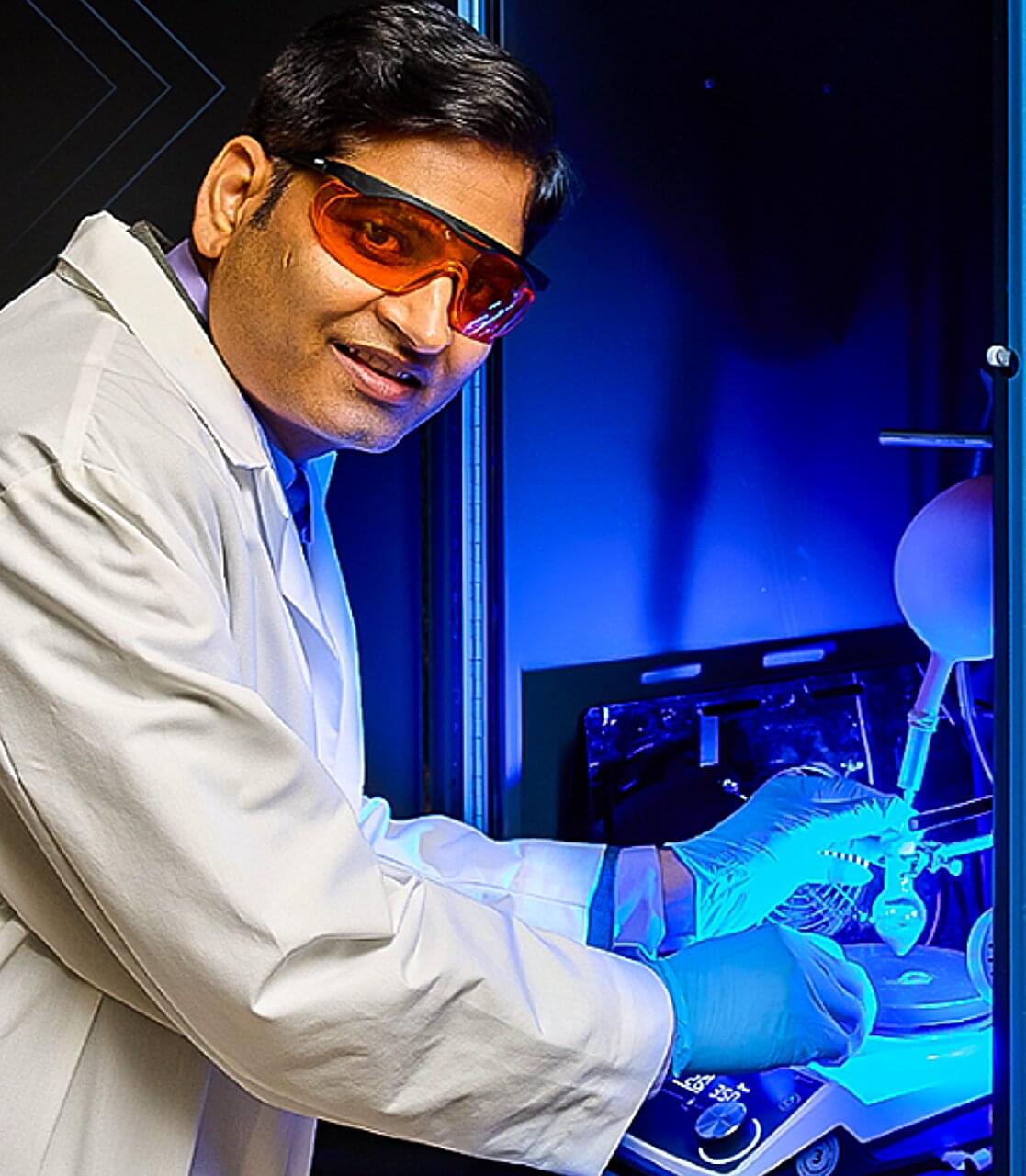Researchers at the University of Oklahoma have made a discovery that could potentially revolutionize treatments for antibiotic-resistant infections, cancer and other challenging gram-negative pathogens without relying on precious metals.
Currently, precious metals like platinum and rhodium are used to create synthetic carbohydrates, which are vital components of many approved antibiotics used to combat gram-negative pathogens, including Pseudomonas aeruginosa, a notorious hospital-acquired infection responsible for the deaths of immunocompromised patients. However, these elements require harsh reaction conditions, are expensive to use and are harmful to the environment when mined.
In an innovative study published in the journal Nature Communications, an OU team led by Professor Indrajeet Sharma has replaced these precious metals with either blue light or iron, achieving similar results with significantly lower toxicity, reduced costs, and greater appeal for researchers and drug manufacturers.
